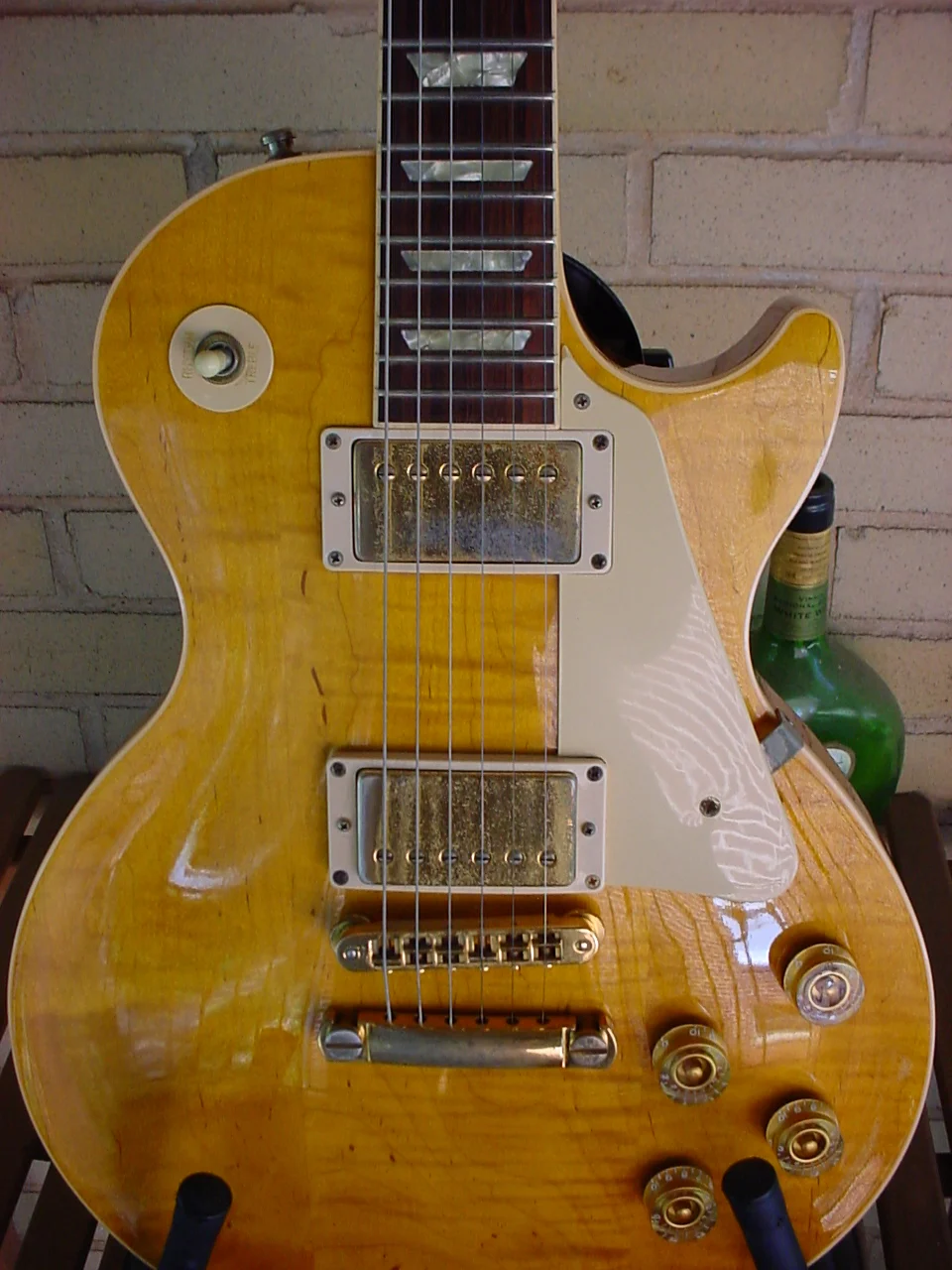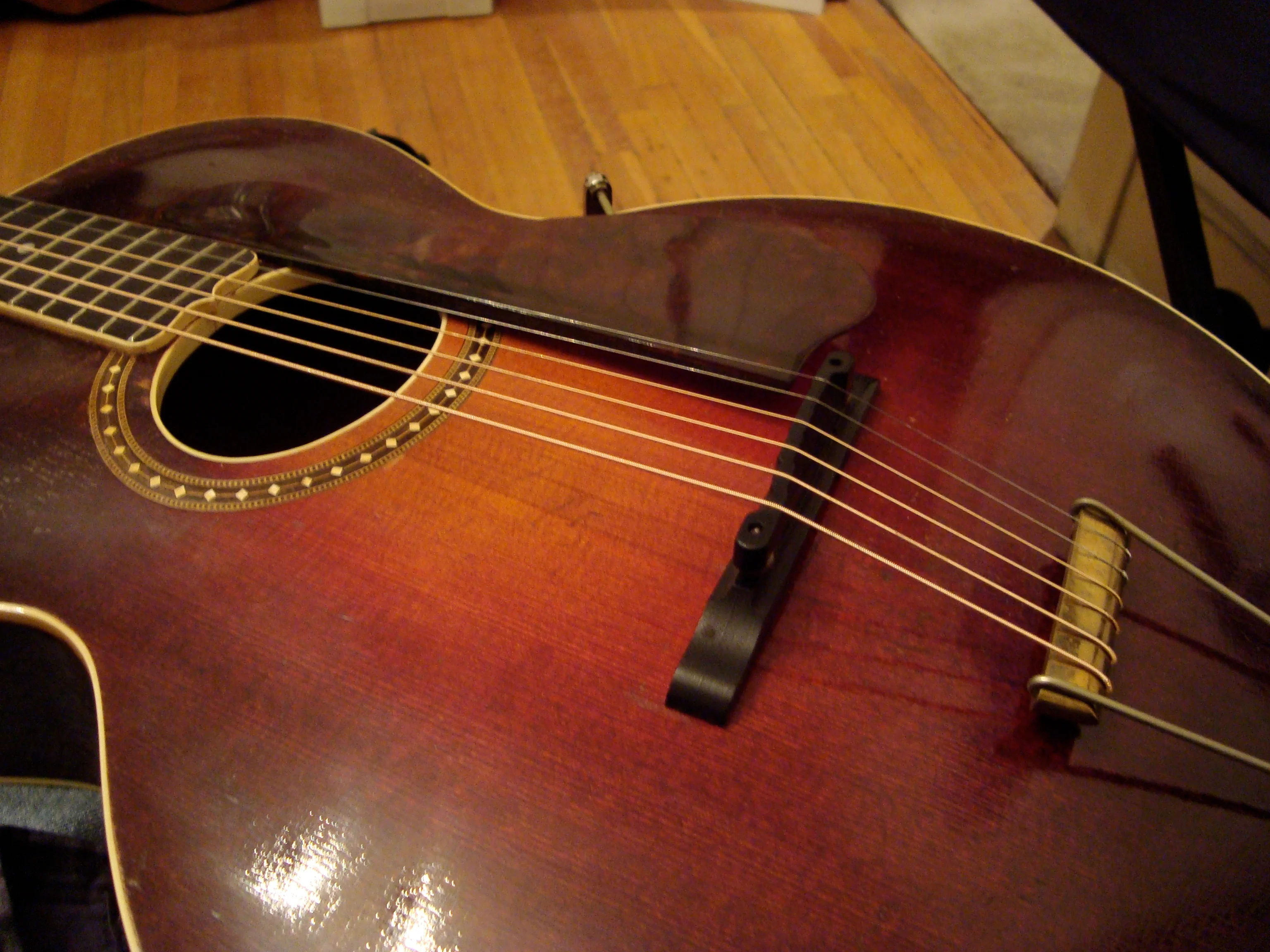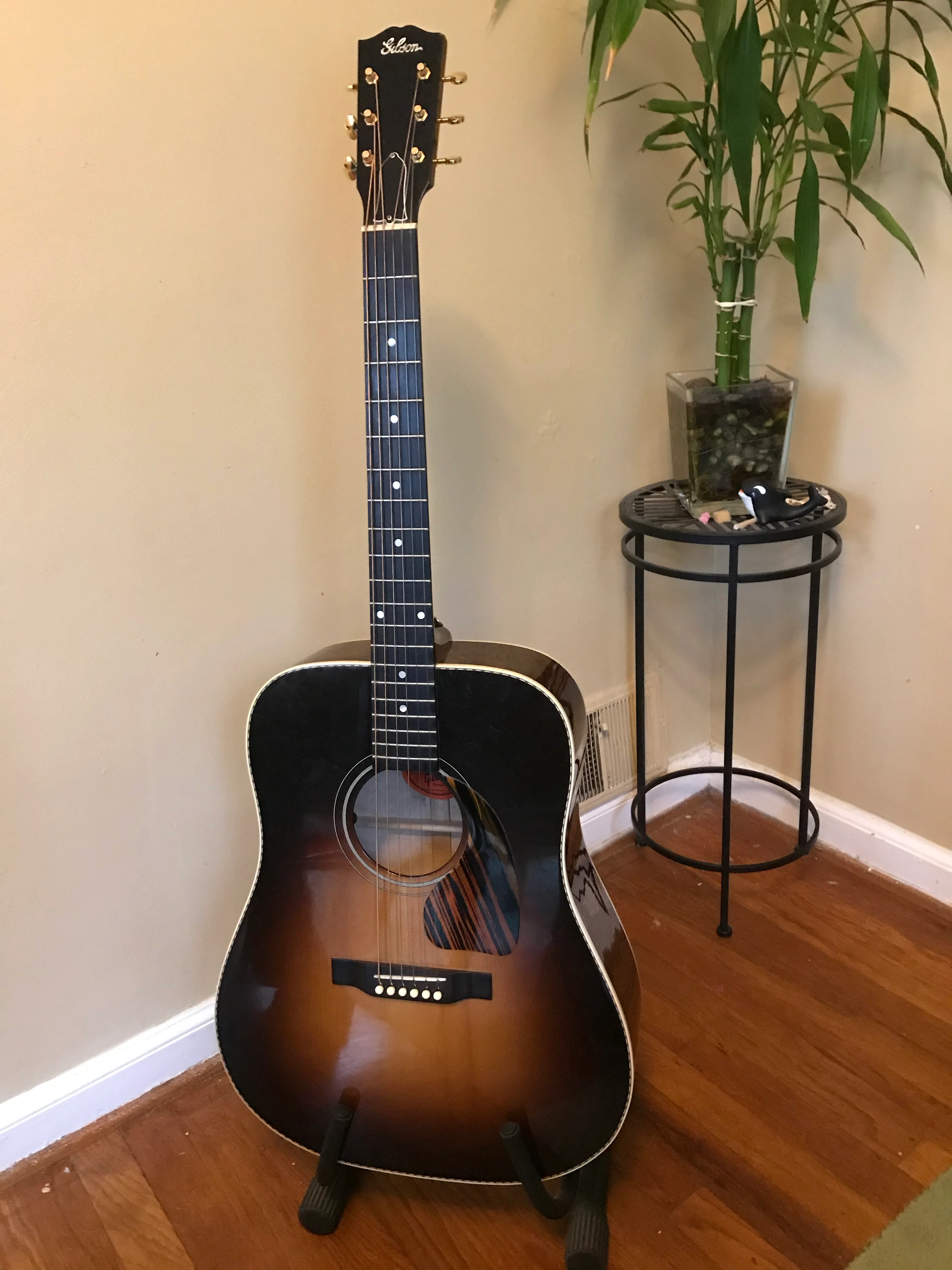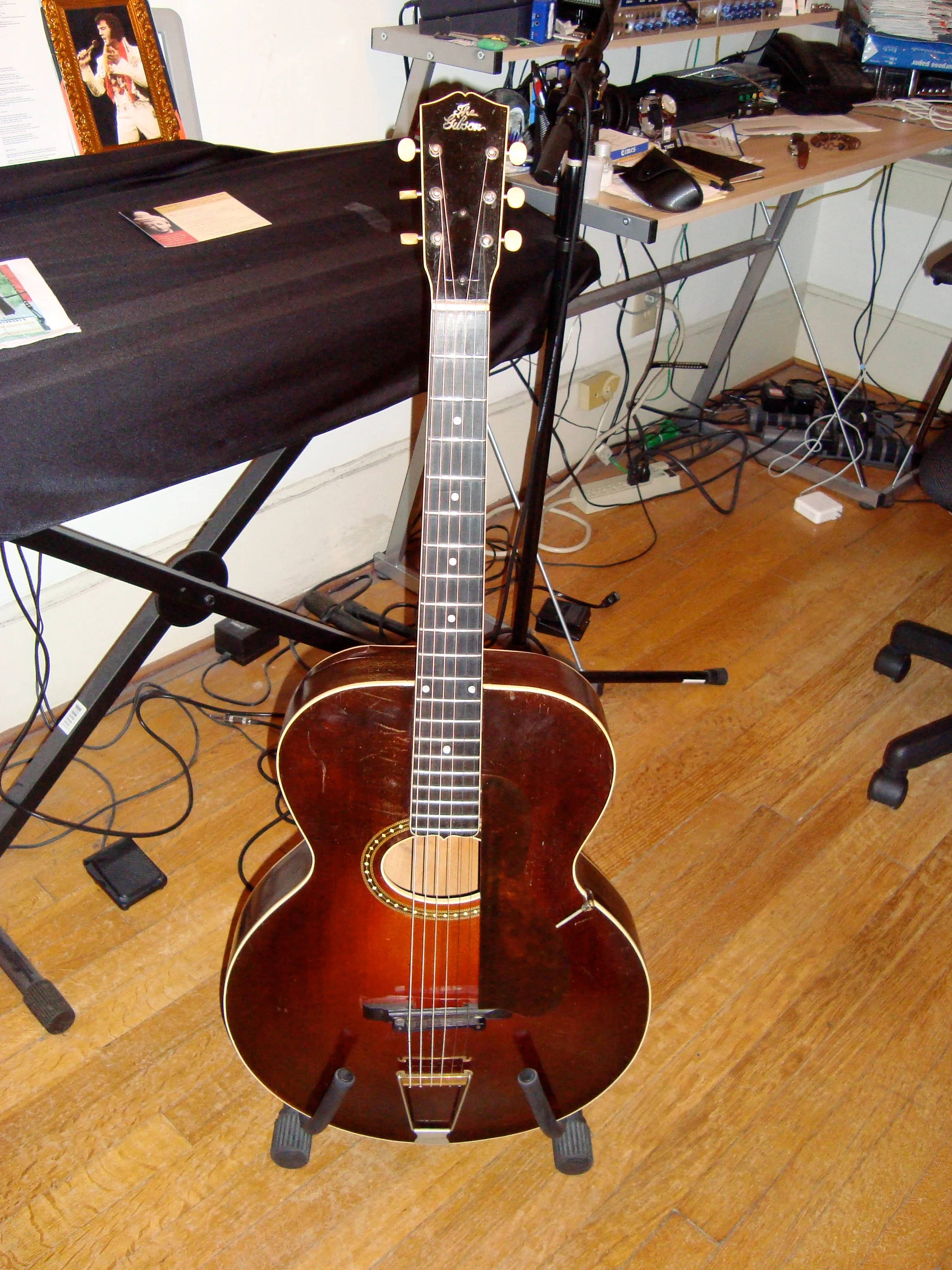written by Metro Music Makers instructor Art Linton
How many guitars do you need, anyway? You’ve got a pretty good guitar already. But maybe not the nicest, coolest, sweetest guitar money can buy. You bought something inexpensive to start out, because you weren’t sure how serious you were going to be or how much you were really going to play. Now, it turns out you’ve been playing for a good, long while (a year or two maybe?), and now you’re thinking “Hey, I’m a real guitar player, so I deserve something really nice!” Of course, you do! Right? Right! So, let me talk you into it.

Why You Should Buy It
Why buy anything? Is it a “need” or a “want”? Aye, there’s the rub. A new (or old), second guitar won’t necessarily take you to the “next level” of playing. The truly great players can strum a piece of plywood and make it sing. So, fair warning, a better (and more expensive) axe won’t automatically make you a better player, but it just might inspire you to practice more often. And it might impress your other guitar-playing friends too.
Let’s face it, you might not be a racecar driver, but it sure is more fun driving a Ferrari than a Ford. But watch out, you might just get the infamous G.A.S. too, so beware! (G.A.S. = Guitar Acquisition Syndrome, aka the downfall of many a guitar player’s credit score!). Remember, the talent is in the heart and in the hands, not in the instrument. A great player can make even a cheap guitar sound like a million bucks. It’s not just the guitar, folks.
Another thing to consider is if this instrument is something you’re really going to play. If you’re buying the guitar as a collector’s item, that’s a different game. All the guitars that I bought I intended to play. Now, some of them are very expensive guitars, but it is my humble opinion that they are made to play, so I anticipate that they are going to get dinged up, scratched, dented, cracked, spit, slobbered, bled on, etc. You should not be too concerned about that unless you’re going to put it in a museum or hang it on the wall. In my opinion, it’s a shame to not play a fine instrument and just let it rot in a storage unit somewhere.
Things To Look For
I would not buy a guitar without playing it. Try several guitars on for size to find out what you like: the feel of the neck, the weight and sound of the instrument, the wood, the smell, the color, the texture, the tone… You will know it when you find it (and hear it). It’s a bit like taste. Get yourself out there and discover how different guitars feel and sound. There are some serious and subtle differences between them all, but at the end of the day, it depends on your playing style and what you’re trying to accomplish. And on your wallet, of course. More expensive doesn’t necessarily mean better. Some of my favorite guitars are “inexpensive” (aka cheap, “pawnshop guitars”). Don’t knock pawnshop guitars. I found one of my acoustic faves covered with dust, stringless, in the back of an old music store in Decatur. Got it for $60. It turned out to be a unique tone monster, and I’ve used it a lot in the studio because it’s easy to record, not “boomy” like the expensive dreadnaughts, which can be hard to mic properly.
Are you the rhythm guitar person, or are you a solo guitarist in the band? Or do you play solo? What kind of music do you dig? A jazz player will play Gibson ES-335, but so will a rock and roller. So will the blues dude/dudette. But you don’t see too many rock guitarists playing nylon string guitars, and you don’t see many bluegrass players playing electric guitars. Those bluegrass pickers tend to like Martin or Gibson dreadnaughts, and they usually like a higher action and heavier strings. But then again, rules are made to be broken, along with strings. If you can’t do it yourself, have a luthier or guitar repair guy “set up” your instrument so that it plays at its optimal level. They will check the intonation and adjust the neck if needed.

Speaking of strings, string action is the main thing for most players. What is string action, you say? The action is the height of the strings over the fret board all the way down the neck. Make sure the guitar has a straight neck. You can look down the fretboard from both ends to ensure it is straight, but be sure you know what you are looking for—it should look like a straight “railroad track” with no dips or curves. If you play a lot of fast guitar licks (a shredder), you want to have the action set as low as you can get it (depending on the kind of strings you put on the guitar, of course). If you switch the strings from medium gauge to lighter gauge, is the neck still going to be okay? Heavier gauge strings have more tone and volume to them, but lighter strings are easier to play and are better for faster players and shredder types, especially on electric guitar. To me, they don’t have as much sonic presence and tone on either an electric or acoustic, but that’s just my taste.
I always say choose with your ears and then with your fingers. The way it sounds, the way it feels, the way that it fits YOU. Do you mostly sit down or stand up when you play? What’s the weight of the guitar feel like? Gibson Les Paul electric guitars can seem like a ton of bricks on your shoulders after a while. The Les Paul is a pretty heavy, solid body guitar, so if you are older (what would Keith Richards do?) and don’t feel like you want to stand up for several hours while the Les breaks your back (and if you’re a gigging musician), you probably want to play something a bit lighter. Maybe get a hollow body guitar or something a bit lighter like a Strat or Tele. But keep in mind that it can be a trade-off when it comes to tone.
What guitars are you attracted to visually? The aesthetic quality of the guitar can be attractive in of itself. It might make you want to sit down and play more than usual. But your second guitar doesn’t necessarily have to be expensive. I have a second guitar… and a third and fourth and fifth and 15th guitar. I’ve purchased used guitars, old guitars and even what would be considered somewhat “junk” or inexpensive guitars for their different intrinsic sounds or timbres. Guitars like the old Kays, True Tones, Silvertones and Ekos. I’ve got an f-hole archtop True Tone guitar (originally sold by Western Auto Stores, you know the one I found in the dusty music store back room), and it has a certain tone to it that I love. I fixed it up so that it plays a lot better. I put new Gotoh tuning gears on it and tightened up the truss rod, made a few other tweaks, and it’s never sounded finer.
Tone (Have I Mentioned It Yet?)
What you’re looking for (or rather listening for) is that ever-elusive, magical, mysterious “tone” for acoustic and electric guitar. The quality of the wood is one determining factor. You can hear the tone in the finer, denser wood. Often the more expensive hardwood has the better tone (maple, spruce, ash, koa, mahogany, etc.). It’s also important to know who made it. Is it a custom shop instrument made by a private luthier, or is it stock model from the factory floor? Those are the kind of things you need to think about, and budget accordingly.
But Seriously, How Much Should You Spend?
These days you don’t have to spend a lot of money to get something that you will enjoy playing. In fact, I challenge you to find a bad cheap guit
ar. Let me know if you find one. The market has shifted from producing high-end, high quality expensive guitars towards considerably less expensive and very affordable ones.
Look at used guitars and look at new ones. You might go to a pawnshop. But some of their prices are ridiculous, so beware! Do your research online and compare prices first. Sometimes “the deal” isn’t such a deal. Go to the big corporate and small indy guitar stores in person. Go online to compare. Look around. The brand you pick is a matter of taste, loyalty and marketing, just like buying a car.
In my opinion, all the brands are pretty good and there are no more bad guitars being made right now. All of them are quite playable. Paying a king’s or queen’s ransom for a fine guitar often doesn’t make any sense, unless you are just wanting to wow folks with your special instrument that you have to take out an insurance policy on, as well as a second mortgage on your house. Look for an instrument that you will enjoy playing often. You will know it when you find it; it’s like love at first sight! Or perhaps love at second sight, in this case!
You certainly don’t have to spend a lot of money. It would be like driving an expensive, high-performance Formula One race car around town, versus a really solid, reliable and affordable (but still quite nice) sedan. It depends on your final goal. If your main objective is aesthetics or prestige, that’s one thing. But if you’re talking about sheer enjoyment and playability, I would stick with tried-and-true brands like Gibson, Fender, Taylor and the like (they can be quite expensive too, though). There is also nothing wrong with Squier, Yamaha, Seagull, Epiphone, Ibanez, Breedlove, for that matter. Spending lots of money won’t make you a better player, unfortunately. There is no substitute for the woodshed and practice.

Where You Should Buy It
I recommend that you look at websites like Guitar Center, Sweetwater, Sam Ash, Reverb, and other such online retailers. But I would usually not recommend buying a guitar sight unseen or untouched. As I write this now, during the COVID-19 pandemic, it’s probably not the best idea to go to a brick-and-mortar store unless you feel comfortable doing so. Just be sure they have safe social distancing and mask requirements. I just bought a Squier Mini P-Bass in store at Firehouse Guitars over in Decatur, Georgia, and I bought a Fender Rumble 15-watt Bass Amp online from Sweetwater. I love them both— they were just what I needed. I got them both for less than $300. Sweet!
Final Thoughts
In sum, what you should look for depends on you, your attitude and approach to the instrument, and your playing style. A shredder wants one kind of guitar, the folky another kind, and the classical player another kind entirely. At the end of the day, you want to find a guitar that you just love. It’s a kind of romance, honestly. You pick it up and you just fall in love with it immediately. That’s how my favorite guitars came to me. When I picked them up in the store, I just said, “Well you know, I’m not going to put this back on the rack. It’s mine!” A match made in heaven! You fall in love with the tone of it, the feel of it. It just really sings to you, you know? So, as you get to be a better player, you can really hear and feel the nuances of a finer instrument. And other people can hear it too. These special instruments tend to project a sweeter sound, and they have more sonic presence and a special intangible quality to them. Like I said, this has a lot to do with the quality of the wood and the way that it’s put together—the master craftsmanship involved.
So, these are some of the things I would look for when buying a second guitar—or third or fourth guitar. I own almost 20 guitars, so I shouldn’t be allowed 500 yards from a guitar store. And remember, don’t get G.A.S.—it can be quite painful, especially on the bank account. As Jimmy Buffett once said, “Once that bug bites you, you live with the sting.”

